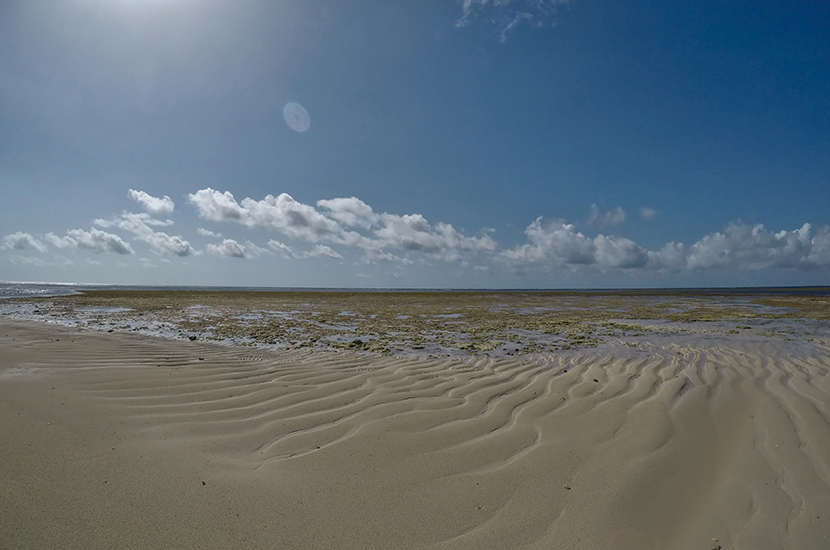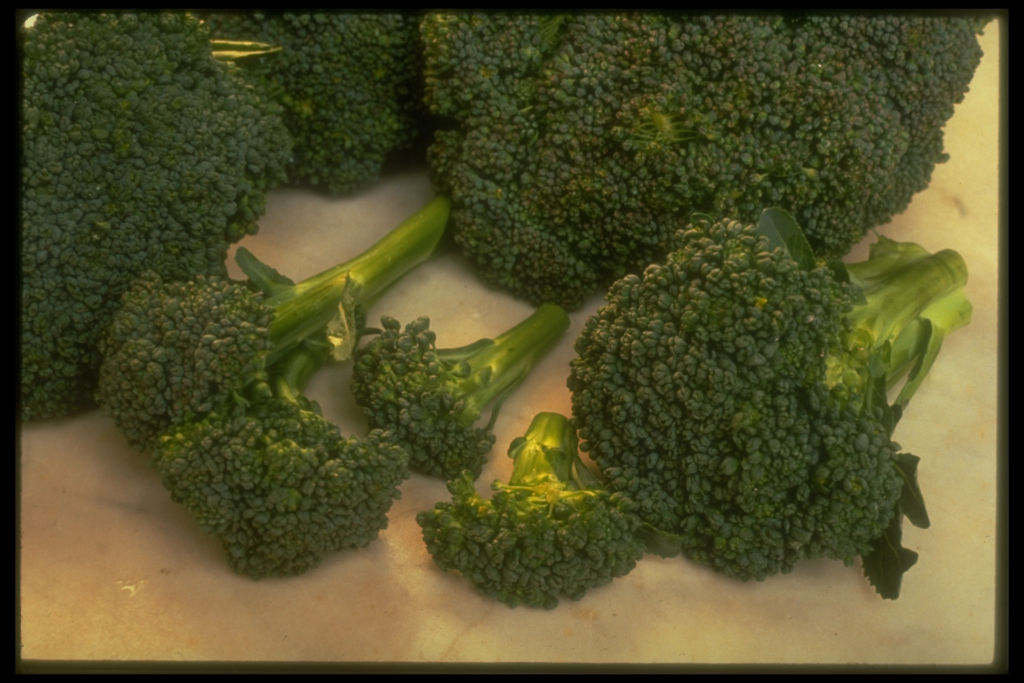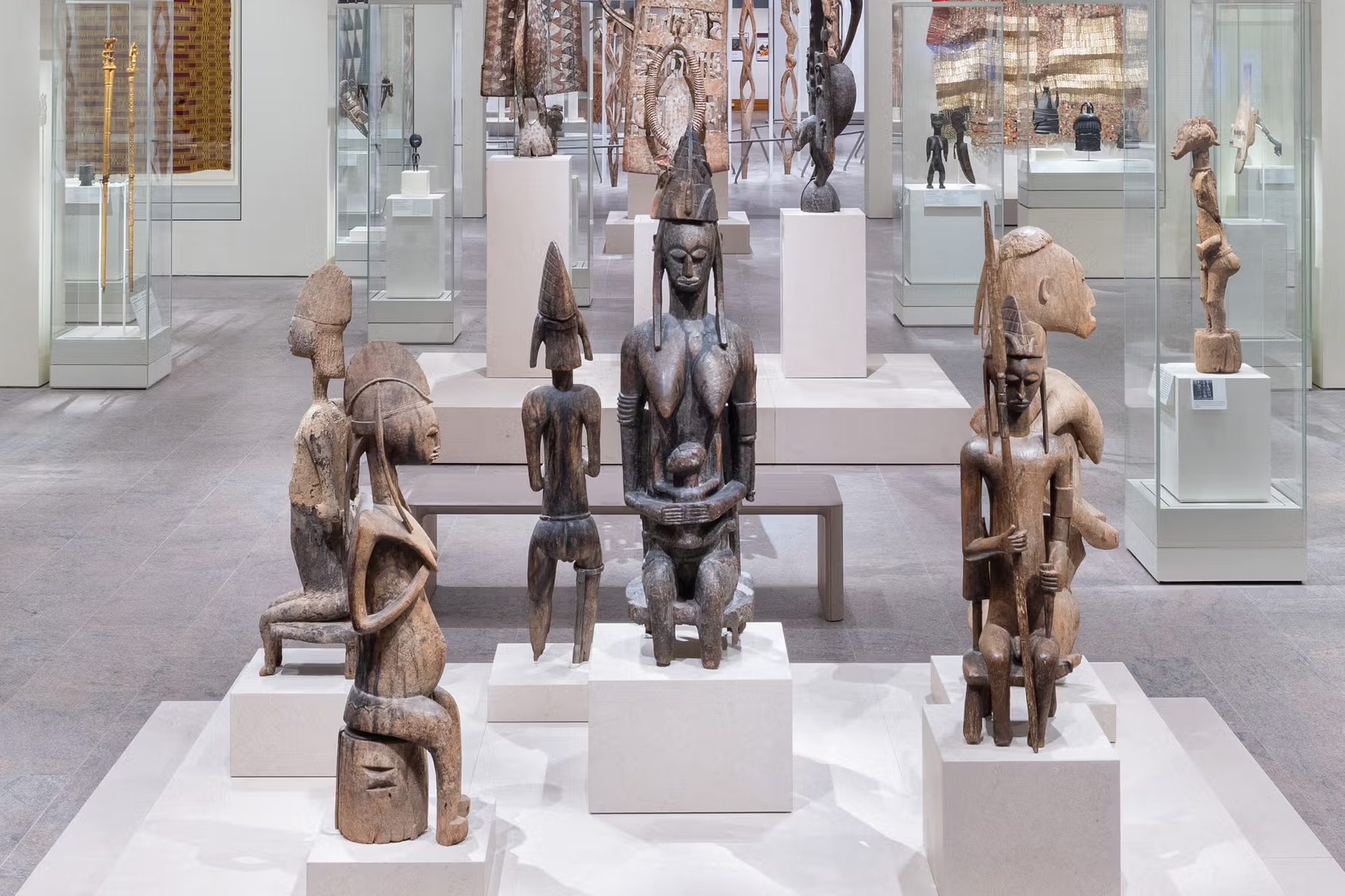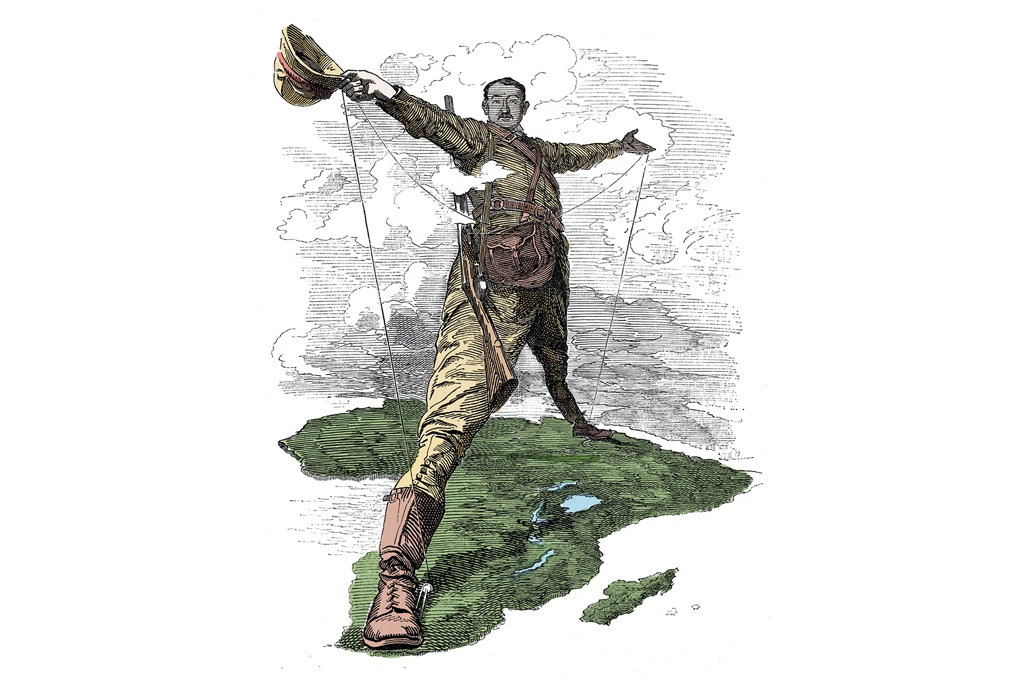Malindi, Kenya
I’ve learned that mourning must be tackled ever so gently. As a younger man, when friends were killed in Africa’s wars I’d become angry and drink. When Dad died I cut adrift in Yemen for a time. Following Mum’s death a month ago, I decided to stay quietly at her home on the beach. The Kaskazi monsoon whirls through the house and white horses roar on the reef. Soon after dusk the memories appear more vivid than in daylight and these parade through my fitful sleeps until dawn, when I can at last get up and trek along the foreshore among ghost crabs and sandpipers. Each morningI box with my coach Amani, before starting work. I run the Laikipia farm by telephone and spend my days on Zoom calls to England. Apart from one robust session with my surfer friend James, I have been careful on the booze.
The year my father died, torrential rain slashed the beach house until the coconut thatch roof caved in and the walls crumbled. My mother fought her grief head on by rebuilding her home, replacing the thatch with a wide, flat, Arab-style roof. This collected all the rain, guiding it into storage tanks so that we no longer had to rely on municipal supplies that often run dry. She built the main house to persuade her children and their families to visit often, while she retreated into a building known as the Kremlin. This had started life as a boat house, but Mum exhausted her last tears while constructing this into a three-floored tower with another flat roof looking out over the ocean.
Into the Kremlin my mother withdrew with her family records, all ordered in albums of letters, diaries and photos. As a widow she now began removing everything from its place to have a closer look. She slept clutching pictures of Dad or her parents. Gradually, loose items joined a pile that churned about on tables and spilled onto the floor. Gradually the chronology of events blurred, a kaleidoscope from many decades in the humid tropical heat. When my children were small we lived with Mum for five years in Malindi and I loved seeing her every day when I was home from my travels. One evening I sat with her in this whirlpool of memories, frangipani scents flooding the room, jade geckos throwing long shadows across lamp lit walls. I asked if she had a plan with all this family stuff. ‘I am sorting it all out and the mess just gets worse,’ she said. Big smile. ‘I love it.’
I’m writing this from where Mum used to sit in the Kremlin at dusk, remembering her stories. Any house on the Indian Ocean beach erodes swiftly, like a sandcastle, against the onslaught of wind and ocean spray. Within a couple of decades it becomes a wreck. Termites burrow through beams and bookshelves. Salt rusts everything. Millipedes invade every corner. Fruit bats crap all over the paintwork. Banyan roots grow through all the pipes. And so now it’s time to begin rebuilding the family home here again, which makes me so busy I hardly have time to grieve. My friend Tony has already drafted superb renovation plans and these are being circulated among my siblings and Swahili contractors. Each day there are the constant comings and goings of carpenters, masons and plumbers, chats over milky tea and bundles of cash, as we study old Arab doors, coral blocks and fresh coconut thatch.
The idea is to create a beach house for Mum’s children and the younger generations coming up, the ones who live in Kenya, America and Europe. My mother adored her gardens, and so we want to restore the plants and flowers she liked most. The road approaching the house still explodes on either side with bougainvillea, which she always said reminded her of a wedding. What we do now by rebuilding the house may keep us going for another quarter century, before it begins to fall down again.
It’s hard to imagine what the world will be like in 2046, or who will be here. As a boy I remember hearing lion roaring in the bush behind the house. I used to go fishing with a man whose grandparents had been emancipated from an Arab slaving dhow. Today Malindi is a very big town, which extends for miles behind the beach where Vasco da Gama first set sail for India, changing the world for ever.
This article was originally published in The Spectator’s April 2021 US edition.

























